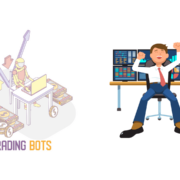As retirement approaches, it’s important to keep busy, keep learning, and keep developing new skills. But with so many options available, which skills should you focus on?
According to Rachel Wu, an associate professor of psychology at the University of California, Riverside, taking up hobbies in retirement is not the same as learning a new skill. Learning a new skill requires a more serious commitment and dedication. Wu suggests giving it at least a few months or even a year to practice and make progress.
When deciding on which skill to learn, it’s important to keep an open mind. Consider delving into activities that you’ve previously avoided or even dreaded, such as public speaking or mastering tech devices. Wu emphasizes the importance of not dismissing things before trying them. While learning can be inherently frustrating, the rewards are well worth it.
Ideally, retirees should be adventurous and intellectually curious by nature. Treat retirement as an opportunity to sample various new skills, from painting to pickleball. Wu suggests learning multiple skills if possible, as there may be unexpected connections between seemingly unrelated hobbies. For example, birding and playing piano may have little in common at first glance, but both involve sensory awareness and motor skills.
If you’re newly retired and looking to start slowly in expanding your skill set, what’s the best new skill to take up? According to Carla Strickland-Hughes, an associate professor of psychology at the University of the Pacific, there’s no one-size-fits-all answer. However, if she had to pick just one skill, it would be dancing. Dancing engages you on multiple levels – it’s social, it sharpens cognitive processes, and it’s physically active. In fact, exercise is particularly important for retirees, so choosing a skill that requires physical exertion makes sense.
In conclusion, as you approach retirement, consider the benefits of learning new skills. Be open-minded and willing to commit the necessary time and effort. Remember that learning is a valuable and fulfilling endeavor, especially in this new chapter of your life. Explore various options, try new things, and find a skill that engages you mentally, socially, and physically. Your retirement will be enriched and rewarding as a result.
The Power of Learning for a Healthy Mind and Body
Introduction
Physical Activity: An Ideal Choice
Engaging in physical activity has proven benefits for the brain, making it an excellent choice for retirees. Not only does it enhance cognitive functioning, but group exercises also provide opportunities for social interaction, which adds to the overall positive effects. Research has shown that individuals who regularly participate in physical activities have healthier brains compared to those who lead sedentary lifestyles.
Exploring Alternative Skill Development
For individuals with mobility constraints, exploring new avenues such as learning a musical instrument or a foreign language can be highly beneficial. By selecting challenging skills that require continuous advancement, one can avoid hitting a plateau and continue reaping cognitive rewards. It is important to choose skills that genuinely interest you rather than merely selecting them based on their potential longevity benefits.
The Role of Motivation
Maintaining long-term commitment to learning new skills relies heavily on motivation. It is crucial to be genuinely interested in the chosen skill to ensure consistent dedication. Pursuing a skill solely because it may enhance longevity can lead to disappointment and lack of motivation. Therefore, personal interest should be the guiding force when selecting a skill to learn.
Adopting a Growth Mindset
The right mindset is key to successful skill development. Embracing a growth mindset encourages openness to exploration and fosters a proactive approach. This perspective allows individuals to venture outside their comfort zones and experience the rewards of sustained effort and experimentation. By believing in one’s ability to improve and embracing feedback, personal growth becomes a realistic goal.
Overcoming Self-Criticism and Lack of Confidence
While self-improvement is essential, excessive self-criticism can hinder progress. It is important to set aside expectations of immediate perfection and approach learning as a student. Setting a comfortable pace and avoiding self-imposed pressure to excel is crucial. Building confidence and maintaining a positive attitude are key factors in the journey of mastering a new skill.








Comments